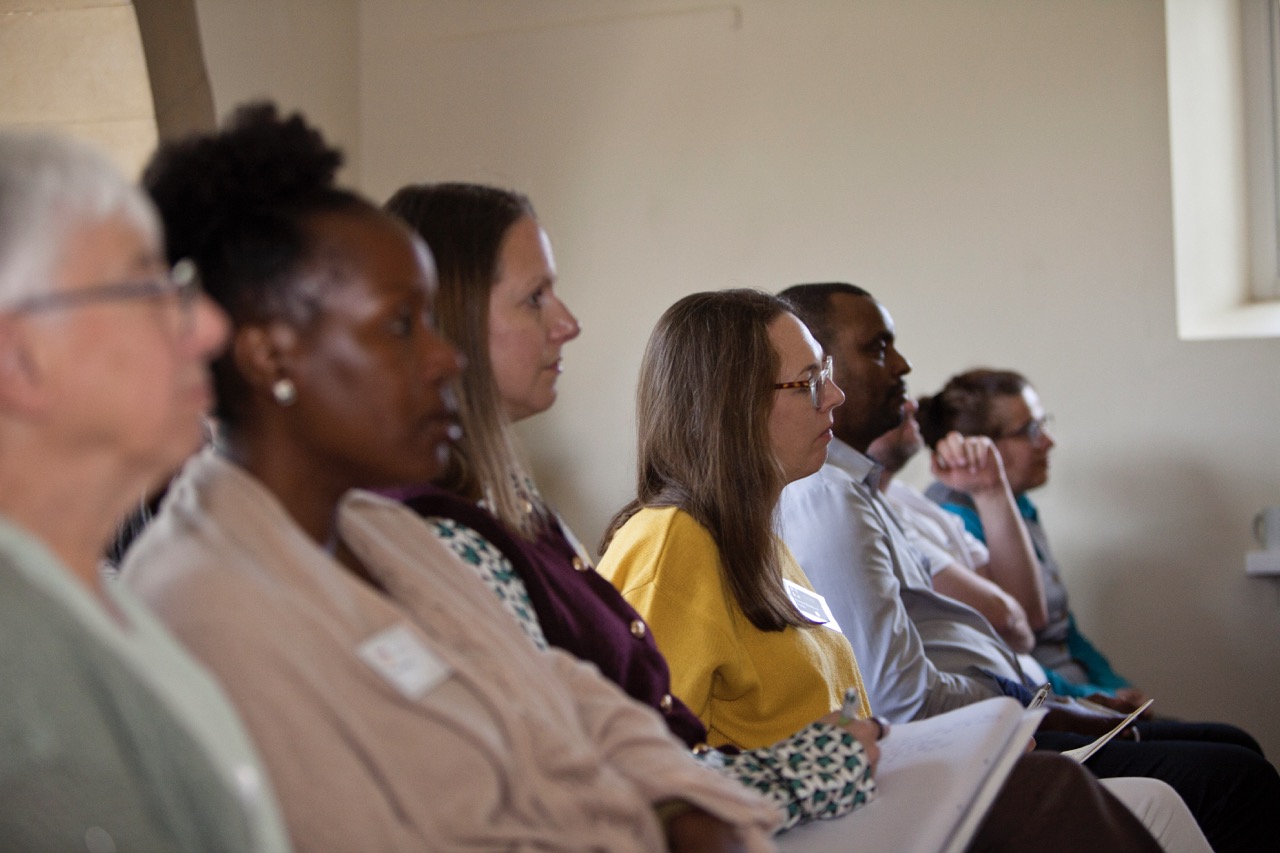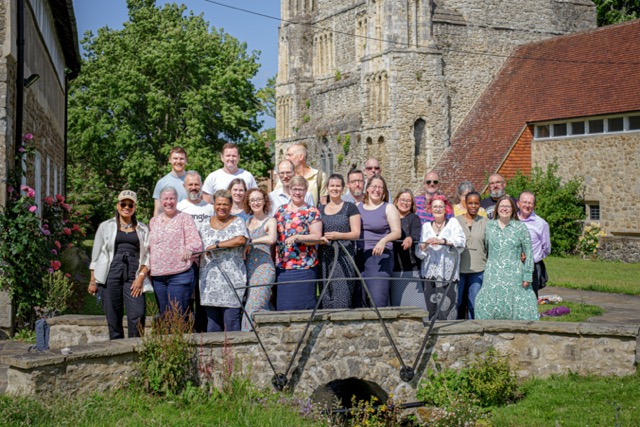Raymond Baudon, the Assistant Diocesan Director of Ordinands for the Diocese of Southwark, explores the various training options available for those selected for ordination training.
About the ordination training pathway
Experience your own theological and ministerial formation through ordination training.
As an ordinand embarking on your journey to ordination, you are invited to dive into a rich and diverse programme of theological learning.
Become part of the Church of England’s vital vision for ministry and leadership in the Body of Christ.
- Develop your skills and learn how to lead through faith, compassion and collaboration.
- Prepare yourself for flexible deployment and build confidence to lead in diverse social, economic and ecclesiastical contexts.
- Gain the wisdom to guide people in an increasingly busy and complex world.
“There’s such a diversity in people at St Augustine’s….It’s not just ordinands, it’s independent students, it’s lay readers. Having the opportunity to have discussions with people from different walks of life is really good.
“All the lecturers are really knowledgeable, and they all have different styles. It’s very interactive, and I’ve loved every lecturer I’ve had. There’s a lot of discussion and interaction – it’s been really spirit-led and awesome!”
Melissa Lavin
Independent student and trainee ordinand
About your programme of study
As part of your ordination training at St Augustine’s, you’ll study for a qualification in Theology, Mission and Ministry.
There are a range of qualifications available, all validated by Durham University as part of the Church of England’s Common Awards.
As an ordinand, you can choose to study for one of the following:
- Diploma of Higher Education (DipHE) in Theology, Ministry, and Mission
- BA (Hons) in Theology, Ministry, and Mission
- Graduate Diploma (GDip) in Theology, Ministry and Mission
- MA in Theology, Ministry, and Mission
Each of these qualifications will allow you to engage in theological study and ministerial training at a level that is appropriate to your own academic experience. Your choice of qualification may also depend on how you’d prefer to study (part-time or otherwise).
Every one of our training programmes allows you, as students, to:
- understand the intersection of Biblical witness and the traditions of faith in contemporary life
- engage in contextual reflection to better understand God’s call in our work
- foster a personal formation that deepens your trust in God’s love, strengthening you to minister that love to others.
By the time your training is complete, you will have gained the knowledge, experience and wisdom you need to minister across a range of missions.
Ordinand David Jones talks about the different worship styles he experienced as part of his ordination training at St Augustine’s.
“There are people from different backgrounds and life experiences. Lots of people are studying alongside work or coming to theological training after doing other things for several years. You’re in the same boat together.”
Tim Aldred,
Ordinand and a former ordination training student
How will I study?
You’re making a huge commitment by starting ordination training. To support you, we’ve designed a range of full-time and part-time study options to help you fit study and placements around your life.
Learn how St Augustine’s flexible study options allow you to learn theology your way, fitting around your life.
Who will I study alongside?
As a college, we are very lucky to have such a diverse student community. You will learn and train alongside students from all backgrounds and Church of England traditions.
Many of our ordinands have answered a call to become an ordained priest later in life, and will be training for ordination alongside work and family commitments. While some of our ordinands may have studied at university level before, others are discovering academic learning for the first time.
You will attend lectures and seminars with both fellow ordinands and students of theology pursuing learning for a variety of reasons, from enriching their understanding of their Christian faith to studying to better serve Christ in their daily lives.
Ray, an ordinand studying at the college, talks about his experience of learning from and sharing knowledge with his fellow students.
Frequently asked questions
Next steps
Take the next step on your journey into ordination training.
Need help or have a question? Contact our admissions team for further assistance.





